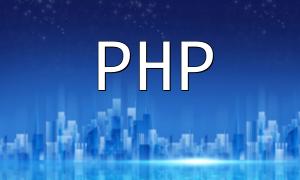How to Leverage PHP Skills to Boost Your Career and Land High-Paying Jobs
PHP (Hypertext Preprocessor) is a server-side scripting language primarily used for web development. It generates dynamic web content and interacts with databases, offering seamless integration with web servers. Due to its simplicity, flexibility, and powerful features, PHP has become one of the most popular programming languages on the web.
PHP was developed by Rasmus Lerdorf in 1995 as a set of CGI scripts to monitor personal website traffic. Over time, PHP evolved into a full-fledged programming language. In 1997, Andi Gutmans and Zeev Suraski joined the development team, and PHP3 was released, becoming widely used in web development. PHP4, released in 2000, added object-oriented programming support, and PHP5 introduced more robust features in 2004. Today, PHP7 offers faster execution and improved type systems, making it even more efficient and powerful.
PHP is primarily used in web development, enabling developers to create a wide variety of websites, from static pages to dynamic applications, including business sites, forums, blogs, and more. PHP can integrate seamlessly with databases such as MySQL, PostgreSQL, and MS SQL, allowing for efficient data storage and management.
PHP isn't limited to web development—using tools like PHP-GTK, developers can create desktop applications that run across multiple platforms, including Windows, Linux, and Mac OS X. Additionally, PHP can be paired with GUI frameworks like Qt to accelerate the development of desktop applications.
PHP is also widely used for writing system administration scripts, automating tasks like configuring environments on multiple servers, managing files, backing up data, and monitoring systems. PHP's popularity has led to a wealth of open-source scripts and tools that simplify these tasks for developers.
PHP's simple syntax and fewer lines of code significantly accelerate development compared to other programming languages. This enables developers to focus more on user experience and feature innovation, helping businesses quickly release new products or improve existing ones.
PHP's relatively concise code makes it easy to maintain and extend. Developers can quickly modify, fix, or add new features as needs change. Moreover, PHP's extensive collection of libraries, frameworks, and tools significantly reduces the cost of building efficient and stable web applications.
As one of the most widely used programming languages in the world, PHP offers abundant job opportunities. PHP developers are in demand across various industries, and PHP's high salary potential makes it an attractive language to learn. Mastering PHP not only opens up diverse job options but also leads to higher-paying roles and career growth.
Before diving into PHP, it's essential to have a solid understanding of HTML, CSS, JavaScript, and jQuery. Other foundational knowledge such as data structures and algorithms is also critical. Additionally, learning MySQL, JSON, AJAX, and other related technologies will help you build dynamic web applications.
The first step in learning PHP is to grasp the basic syntax, including variables, arrays, functions, conditionals, loops, and object-oriented programming. Next, you can explore how PHP is applied in web development, desktop applications, and system management. Finally, learning popular frameworks and tools like Laravel, Symfony, and CodeIgniter will improve your efficiency and code quality.
There are numerous online resources available to learn PHP, including code libraries, blogs, video tutorials, discussion forums, and learning platforms. By engaging with these resources, you can gain practical experience and insights. You can also leverage open-source tools like WordPress, Joomla, and Drupal to accelerate your learning and apply PHP skills effectively.
PHP developers can pursue many career paths, including roles in web development, database management, mobile development, system administration, and more. Developers can also progress to lead teams, manage entire web applications, and train other developers on PHP best practices.
According to PayScale, the median salary for PHP developers is around $68,000, with experienced developers earning $100,000 or more annually. Various factors such as experience, project type, company size, and location can influence salary levels.
The demand for PHP developers continues to rise as global technology needs grow. PHP developers will remain in high demand across industries, and their career prospects are strong. As PHP's popularity increases, developers will have ample opportunities to work with innovative and fast-growing companies, advancing both their skills and careers.
PHP has become one of the most popular languages for web development, used by many organizations, businesses, and individuals to build efficient, high-performance web applications. Its rapid development cycle, ease of maintenance, and wide application make PHP a go-to choice in various industries, including business, social networking, education, and more. By mastering PHP, developers can carve out a high-paying, creative, and rewarding career path.









